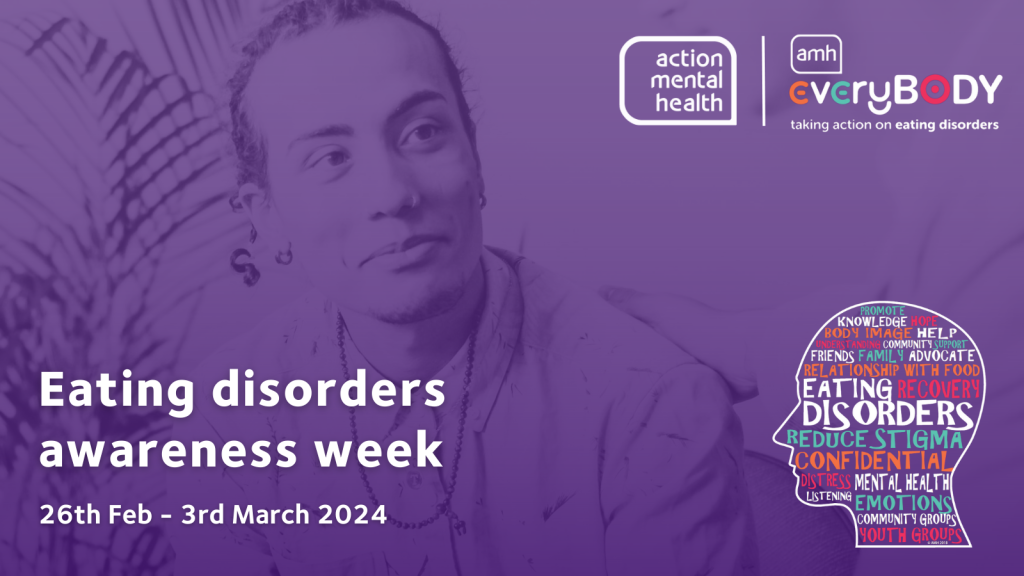
Today marks the start of Eating Disorder Awareness Week, and Action Mental Health’s Eating Disorder service, ‘AMH EveryBODY’, is focusing on how you can support someone who is living with or recovering from an eating disorder.
We have prepared a handy guide full of tips and advice on how to support a loved one, which you can download by visiting our resource section below.
The UK’s eating disorder charity ‘Beat’ estimates that around 1.25 million people are living with an eating disorder right now. Approximately 25% of those presenting are males, and last year, a survey found that more than half of men with an eating disorder have never received treatment.
Department of Health NI estimated figures reveal that up to 20,000 individuals will be living with an eating disorder at any one time in Northern Ireland, with an annual spend of £2 million dedicated to specialist eating disorder services since 2008. This excludes inpatient and treatment costs outside Northern Ireland (health-ni.gov.uk).
Eating disorders are most common in individuals between the ages of 16 and 40 years old – most develop during adolescence, although there are cases in children as young as 6 and in adults in their 70’s. (priorygroup.com, 2023).
What is an Eating Disorder?
Eating disorders are serious and complex mental disorders influenced by a range of factors. They can affect anyone of any age, gender or background. Eating disorders are not all about food itself, but about feelings. How a person interacts with food may make them feel more able to cope, or more in control.
What are the causes?
The exact cause is unknown but a combination of biological, psychological and social factors are believed to contribute to their development. Eating disorders are a coping mechanism for difficulties in that individual’s life, and are much more about feelings at the core than they are about just food or weight.
Protecting yourself during Eating Disorders Awareness Week (EDAW24)
Eating Disorders Awareness Week can bring up many difficult feelings for anyone who has ever experienced (or also supported someone with) an eating disorder. That is why we have prepared a handy guide full of tips and advice on how to support a loved one. You’ll find that, and much more in our resource section – just click on the button below.
We will be sharing content across our social media channels this week to raise awareness of eating disorders, however, we want to remind you that if you need to take a break that is fine and an essential act of self-care. Protect your recovery and that of a loved one always. You are under no obligation to share or revisit pain or trauma just because there is an awareness week or day.
Some things to consider if you do want to share:
Remember that whilst sharing stories for awareness is important and can encourage others to seek support, you are in control of your own story and how much you share. Do what feels best for YOU.
Further support
If you are worried about a loved one and their relationship with food, body image, or exercise habits and you think they may have an eating disorder then please encourage them to speak to their GP first. It is important to access treatment as early as possible, as earlier treatment means a greater chance of fully recovering from an eating disorder. You will find other sources of help in our resource section below.
For further information on Action Mental Health’s Eating Disorder Service, AMH EveryBODY, click here.